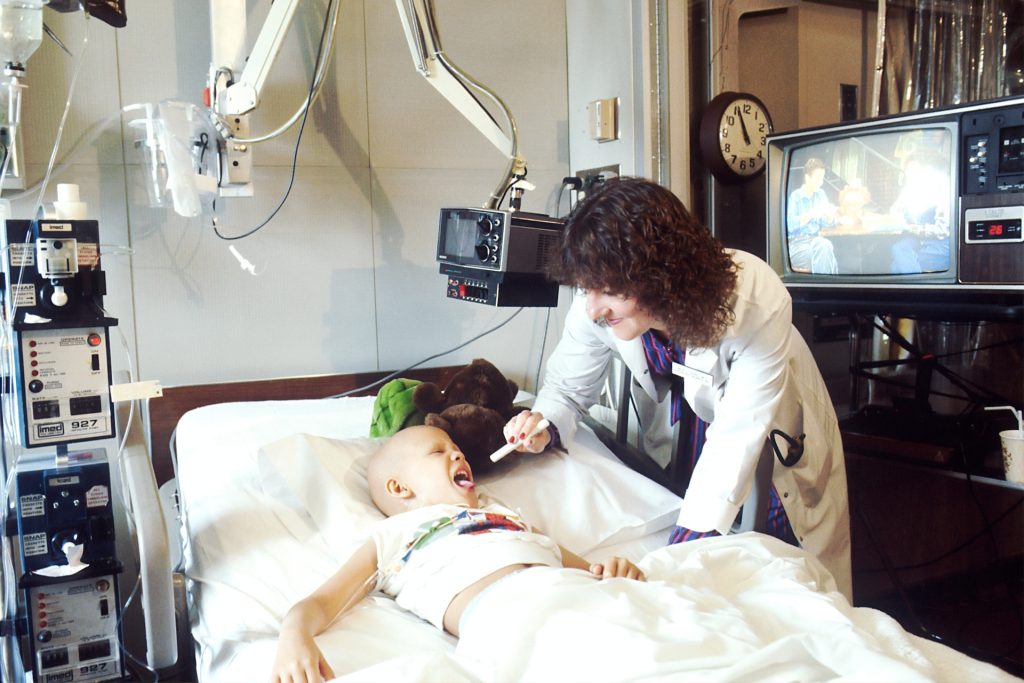Cancer, the very term, can evoke fear, anxiety, and a spectrum of other heavy emotions. For generations, this malady has been a relentless adversary, mutating, adapting, and, unfortunately, flourishing in too many instances. But science has been on a tireless pursuit, garnering deeper understandings, fostering innovative approaches, and bringing a beacon of hope to those touched by this disease. In a rapidly evolving landscape of medical advancements from the Best Cancer Hospital in Hyderabad, the future of cancer treatment paints a promising picture, heralding a new era that aims to redefine our approach to managing and potentially conquering this disease. Let us embark on an enlightening journey to explore the future avenues of cancer treatment that hold the potential to transform countless lives.
Tailored Treatment Strategies: Personalized Medicine
No two individuals are alike, and similarly, no two cancer cases are identical. In recent years, the concept of personalized medicine has emerged as a promising approach to the treatment of cancer. It begins with a comprehensive analysis of an individual’s genetic makeup to identify specific mutations driving the cancer. This information then guides the development of targeted therapies designed to combat the unique manifestations of the disease in each patient. As we move forward, we can expect a surge in precision medicine, with treatments becoming more individualized, thus increasing their efficacy and reducing potential side effects.
Immunotherapy: Enlisting the Body’s Defence Mechanism
Immunotherapy, an approach that utilizes the body’s immune system to fight cancer cells, has been showing tremendous potential. From immune checkpoint inhibitors to CAR-T cell therapy, these treatments have opened new pathways to treat cancers that were previously considered untreatable. Through the process of bioengineering, scientists can now equip immune cells with the weaponry needed to target and eliminate cancer cells specifically. In the near future, we anticipate a wave of breakthroughs in this field, potentially heralding cancer treatments with higher success rates and fewer complications.
AI and Data Science: Revolutionizing Diagnosis and Treatment
Artificial intelligence (AI) and data science have started to play a significant role in revolutionizing cancer treatment. Machine learning algorithms can analyze massive sets of data to identify patterns and trends that might be missed by the human eye. This capability can aid in the early detection of cancer, enabling treatments to commence when the disease is in a more manageable stage. Furthermore, AI-powered predictive analytics can facilitate the development of more effective treatment plans by analyzing the outcomes of various therapeutic approaches. As we forge ahead, AI is set to become an indispensable tool in the arsenal against cancer, streamlining research, diagnosis, and treatment protocols.
Nanotechnology: The Next Frontier in Cancer Treatment
Nanotechnology offers a new frontier in cancer treatment. Nanoparticles, which are tiny molecules approximately 1 to 100 nanometers in size, can be engineered to deliver drugs directly to cancer cells, sparing healthy cells and minimizing side effects. Moreover, nanoparticles can be used to improve imaging techniques, aiding in the early and precise detection of cancerous growths. As research progresses in this domain, we can expect to see groundbreaking therapies that leverage the power of nanotechnology to offer more targeted and effective treatments.
Cancer Vaccines: Preventing Before Commencing
Prophylactic vaccines, such as the ones for cervical and liver cancers, have proven the efficacy of preventing cancer by targeting viral infections that can lead to cancer. Moreover, therapeutic cancer vaccines, a relatively new and exciting avenue, aim to train the immune system to recognize and attack cancer cells. In the coming years, we anticipate witnessing the development of more cancer vaccines, which will work either as standalone therapies or in conjunction with other treatments to bolster the body’s defenses against cancer.
Collaborative Approaches and Global Initiatives
As we march towards a future with the prospect of more effective cancer treatments, collaborative approaches, and global initiatives will be at the forefront. The pooling of resources, knowledge, and expertise on a global scale can expedite the pace of research and development. Global collaborations will be essential in fostering a unified front against cancer, transcending geographical boundaries, and fostering an environment of knowledge-sharing and cooperation.
Patient-Centric Care: Addressing Holistic Well-Being
A critical aspect of future cancer treatment landscapes will be a more pronounced focus on patient-centric care. This approach considers not only the physical ramifications of cancer but also addresses the psychological, social, and emotional dimensions that accompany a cancer diagnosis. By adopting a more holistic approach, healthcare providers can offer support systems that help patients navigate the complex journey of cancer treatment with resilience and hope.
Closing Thoughts
As we glimpse into the future of cancer treatment, it is evident that we stand on the cusp of a paradigm shift. The amalgamation of technology, science, and global cooperation promises a future where cancer treatment is not only more effective but also less invasive and more focused on preserving the quality of life. While challenges remain, the relentless pursuit of knowledge and innovation from the Best Cancer Hospital in Vijayawada fuels optimism that we are marching towards a future where cancer may no longer be an unbeatable foe but a manageable condition, perhaps even eradicated from the roster of human ailments.

